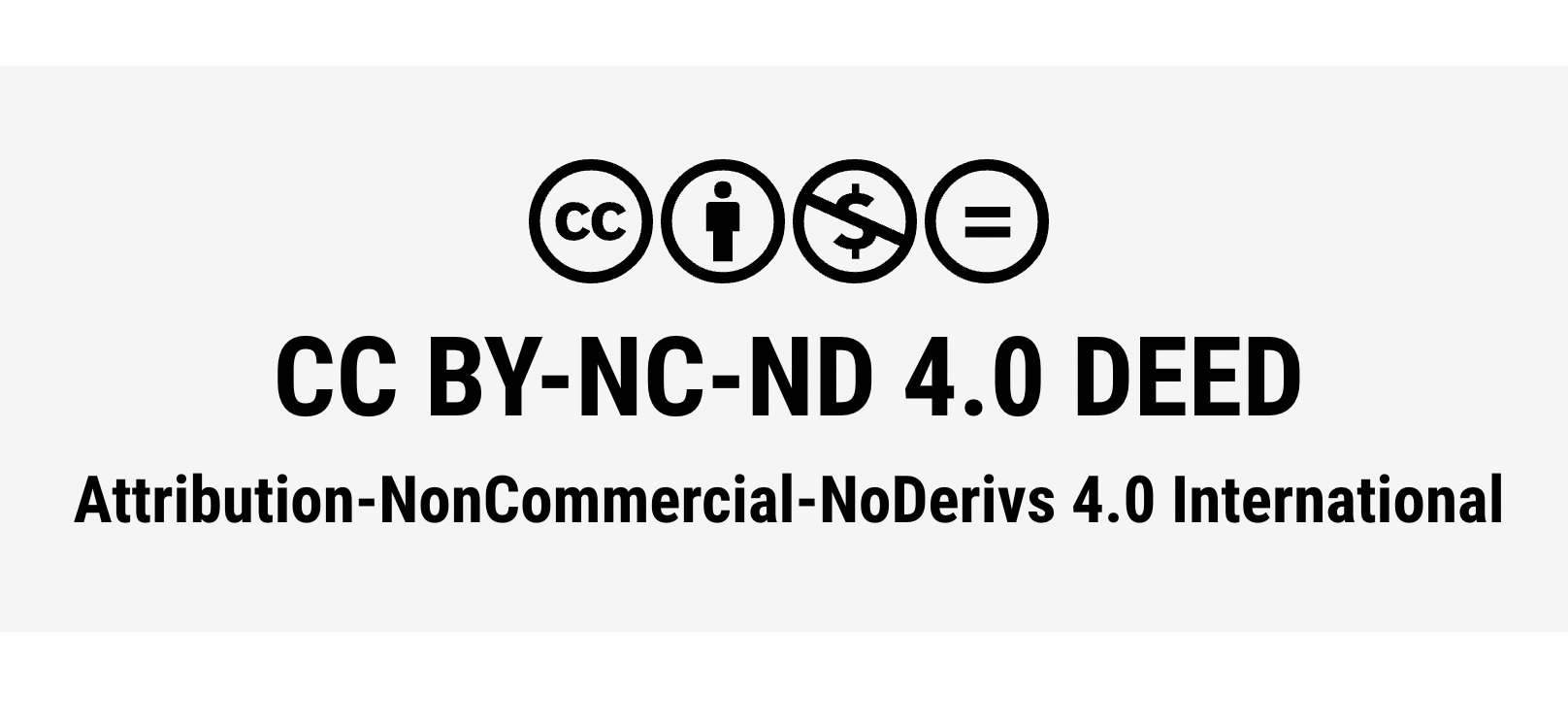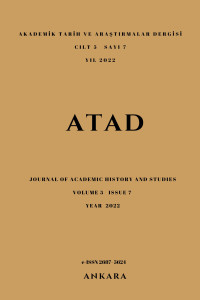The Greek Rebellion of 1821 in the Perspective of an Ottoman Bureaucrat: Örfi Pasha and Coğrafya-yı Örfi
Abstract
The 19th century was a very difficult period for the Ottoman Empire, with both military defeats and movement of thoughts. The Greek rebellion, which can be considered as one of the events that created a domino effect, affected the end of the 18th century and the beginning of the 19th century. The rebellions, which caused deep wounds in the Ottoman Empire, changed the fate of the empire.
While discussing how to control the Greek revolt within the empire, it was also emphasized that the rebellion should not an example for other nations. With the influence of Islamism, which was the dominant ideology of the period, the situation was turned into a Muslim and non-Muslim war and policies for this have been implemented.
Örfi Pasha, one of the bureaucrats of the period, prepared his work Coğrafya-yı Örfi by translation and presented it to the sultan in order to inform the sultan about the Aegean Islands where the rebellion took place. In this study, the relevance of the discourses in Coğrafya-yı Örfi to the politics of the period was investigated.
References
- Armaoğlu, F. (2014). 19. Yüzyıl Siyasi Tarihi. İstanbul: Timaş Yayınları.
- Beydilli, K. (2003). Mahmud Raif Efendi. İslam Ansiklopedisi. 27, 322-323.
- Erdem, H. (2005). “Do not Think of the Greeks as Agricultural Labourers” Ottoman Responses to the Greek War of Independence, Citizenship and the nation-state in Greece and Turkey, (F. Birtek ve T. Dragonas Ed.) içinde (ss.67-85). Routledge.
- Feyzioğlu, H. S. (2015). Mora İsyanı ve Yunanistan’ın Bağımsızlığı (1821-1829). Yeni Türkiye Dergisi 68, 2865-2873.
- İhsanoğlu, E. ve R. Şeşen (2000). Osmanlı Coğrafya Literatürü Tarihi I, İstanbul: IRCICA.
- Kutlu, S. (2018). Balkanlar ve Osmanlı Devleti. İstanbul: İstanbul Bilgi Üniversitesi Yayınları.
- Örfi Paşa (1827). Coğrafya-yı Örfi. Süleymaniye Yazma Eserler Kütüphanesi, Esad Efendi Koleksiyonu, No. 2045.
- Sarıcaoğlu, F. (2004). Coğrafya-yı Örfi (1827) Örfi Pasha’s Unknown Work of the Aegean Islands in Greek Rebellion. II. National Symposium On the Aegean Islands.
- Sarıcaoğlu, F. (2015). Piri Reis’den Örfi Paşa’ya Osmanlı Tarihi Haritaları ve Tarihi Coğrafya Eserleri. İstanbul: Çamlıca Yayınları.
- Toprak, S. (2015). 19. Yüzyıl Milliyetçilik Çıkmazında Rumlar. Yeni Türkiye Dergisi 68, 2841-2865.
- Yaşar, F. (2017). Sakız'daki Yunan Ayaklanmasının Tanığı Olan Bir Eser: Zuhûr-I Fîtne-i Rum. Akademik Sosyal Araştırmalar Dergisi, 63, 390-404.
Abstract
19. yüzyıl, hem getirdiği askeri yenilgiler hem de fikir akımlarıyla Osmanlı Devleti için oldukça zorlu bir dönem olmuştur. Domino etkisi yaratan olaylardan biri sayılabilecek Yunan isyanı ise, 18. yüzyılın sonunu ve 19. yüzyılın başını etkisi altına almıştır. Osmanlı Devleti’nde oldukça derin yaralar açan isyanlar, imparatorluğun kaderini değiştirmiştir.
İmparatorluk içerisinde, Yunan isyanının nasıl kontrol altına alınacağı tartışılırken, aynı zamanda isyanın diğer milletlere örnek olmaması üzerinde de durulmuştur. Dönemin baskın ideolojisi olan İslamcılık etkisiyle durum bir Müslüman ve gayrimüslim savaşı durumuna getirilmiş ve buna yönelik politikalar uygulanmıştır.
Dönemin bürokratlarından Örfi Paşa ise, isyanın yaşandığı Ege Adaları ile ilgili padişahı bilgilendirmek amacıyla Coğrafya-yı Örfi eserini çeviri yolu ile hazırlayıp padişaha sunmuştur. Bu çalışmada, Coğrafya-yı Örfi eserindeki söylemlerin, dönemin politikasıyla ilgisi araştırılmıştır.
References
- Armaoğlu, F. (2014). 19. Yüzyıl Siyasi Tarihi. İstanbul: Timaş Yayınları.
- Beydilli, K. (2003). Mahmud Raif Efendi. İslam Ansiklopedisi. 27, 322-323.
- Erdem, H. (2005). “Do not Think of the Greeks as Agricultural Labourers” Ottoman Responses to the Greek War of Independence, Citizenship and the nation-state in Greece and Turkey, (F. Birtek ve T. Dragonas Ed.) içinde (ss.67-85). Routledge.
- Feyzioğlu, H. S. (2015). Mora İsyanı ve Yunanistan’ın Bağımsızlığı (1821-1829). Yeni Türkiye Dergisi 68, 2865-2873.
- İhsanoğlu, E. ve R. Şeşen (2000). Osmanlı Coğrafya Literatürü Tarihi I, İstanbul: IRCICA.
- Kutlu, S. (2018). Balkanlar ve Osmanlı Devleti. İstanbul: İstanbul Bilgi Üniversitesi Yayınları.
- Örfi Paşa (1827). Coğrafya-yı Örfi. Süleymaniye Yazma Eserler Kütüphanesi, Esad Efendi Koleksiyonu, No. 2045.
- Sarıcaoğlu, F. (2004). Coğrafya-yı Örfi (1827) Örfi Pasha’s Unknown Work of the Aegean Islands in Greek Rebellion. II. National Symposium On the Aegean Islands.
- Sarıcaoğlu, F. (2015). Piri Reis’den Örfi Paşa’ya Osmanlı Tarihi Haritaları ve Tarihi Coğrafya Eserleri. İstanbul: Çamlıca Yayınları.
- Toprak, S. (2015). 19. Yüzyıl Milliyetçilik Çıkmazında Rumlar. Yeni Türkiye Dergisi 68, 2841-2865.
- Yaşar, F. (2017). Sakız'daki Yunan Ayaklanmasının Tanığı Olan Bir Eser: Zuhûr-I Fîtne-i Rum. Akademik Sosyal Araştırmalar Dergisi, 63, 390-404.
Details
| Primary Language | Turkish |
|---|---|
| Journal Section | Research Articles |
| Authors | |
| Publication Date | December 31, 2022 |
| Acceptance Date | December 4, 2022 |
| Published in Issue | Year 2022 Volume: 5 Issue: 7 |
Cited By
Our journal is a member of CrossRef. 


